Unlike a regular doctor, a pharmacist is a person at a pharmacy, who provides medicines to people on demand. A pharmacist in reality is a healthcare professional who is also known as the Doctor of Pharmacy. In order to pass the doctor of pharmacy degree (PharmD), you are required to get an education for about six to eight years. This is when a qualified pharmacist is ready to get into practical work.
On this page, down below, you can download some nicely laid out, beautifully designed letterhead templates specially designed for Pharmacists in MS Word. You can personalize them in any way you want to print a high-quality prescription pad or a letterhead pad for you.
#1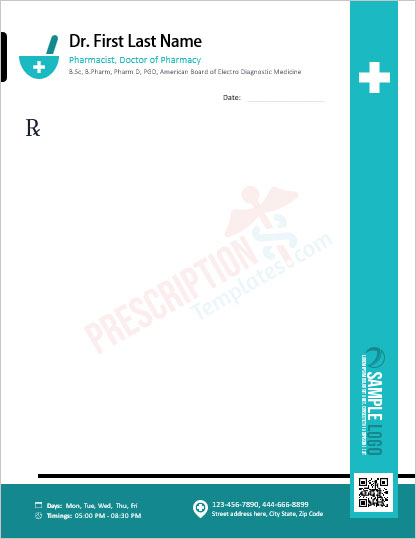
#2
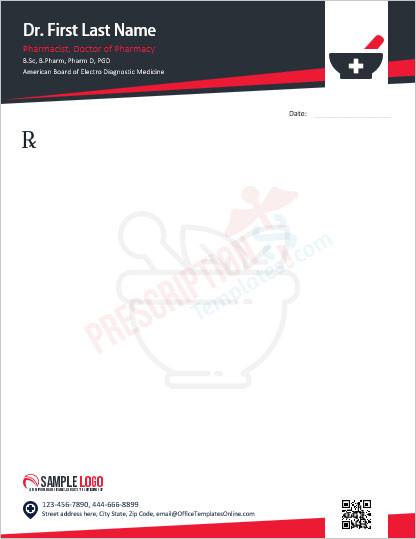
#3
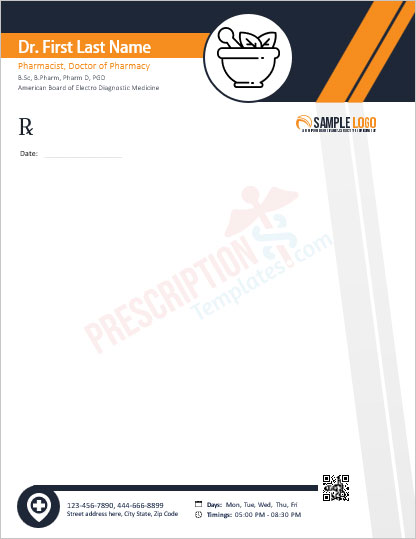
#4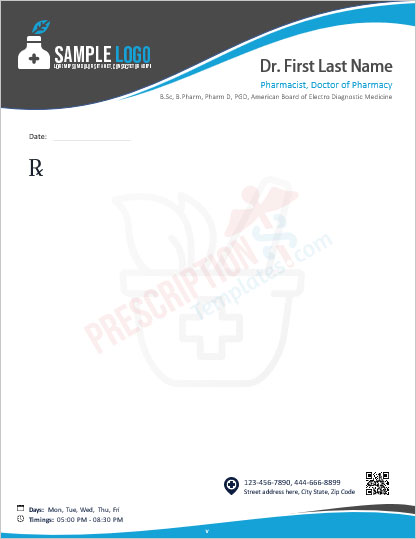
#5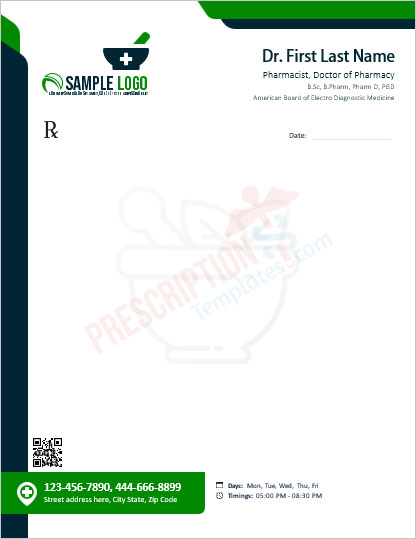
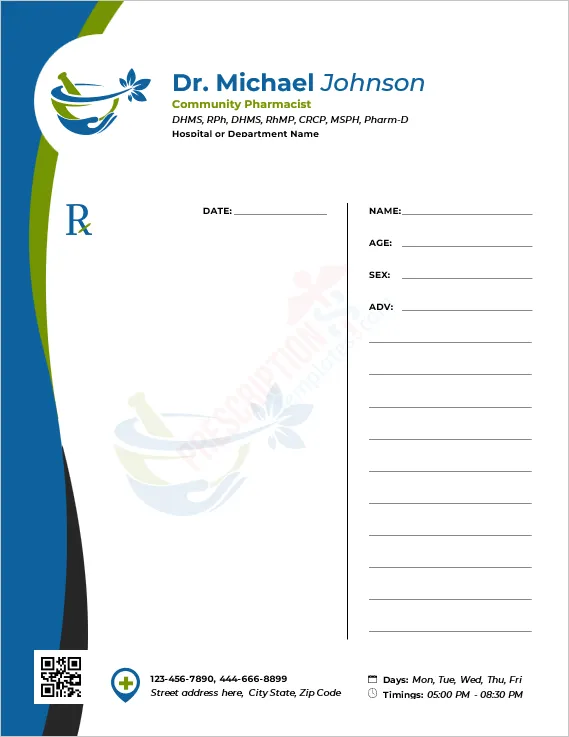


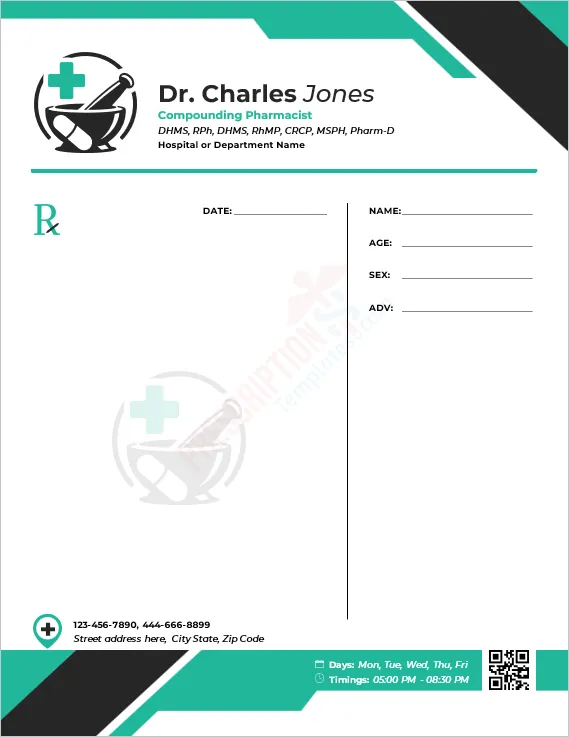
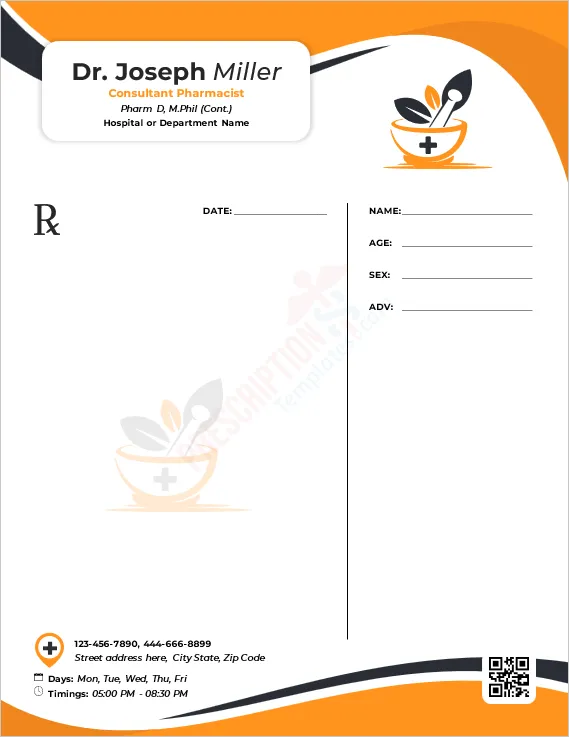
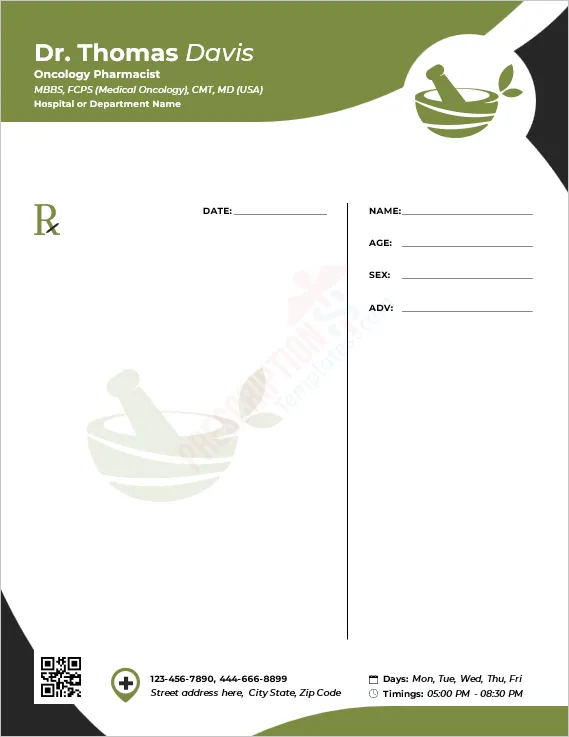
A pharmacist has been trained to make rules and keep a check on the storage, provision, handling, preparation, and out-supply of medicines. Their responsibility is to provide the right, detailed information to patients regarding the medicine. One of the most critical things they need to do is to “cross-check and verify” that the medicines prescribed to a specific patient are harmless and would not trigger a reaction inside the body. This is why people are highly dependent on their pharmacists besides their physicians.
Other more specific responsibilities include:
A pharmacist can be found in specialized pharmacies but in many countries, the common roadside pharmacies do not have a trained pharmacist in them. Usually, store men are dealing with medicines and provide them to people only based on their physician’s prescription. In other more developed countries hospitals, diagnostic pharmacies, and laboratory settings have a professional pharmacist to guide the patients.
Pharmacists are also found in particular settings where their duties are specific to that setting, for example, a doctor of pharmacy inside an oncology center would make sure the medicines prescribed are safe for the patient based on his/her condition. Other settings where pharmacists work include:
[pharmacists found at pharmacies are just one of the many types. They are recognized as ‘retail pharmacists’ or ‘community pharmacists’ and are expected to provide basic medication and educate the public on various health-related issues. Other types include:Clinical pharmacists Advising patients and doctors on the most suitable medicines Oncology pharmacists Experts in chemotherapy and cancer drugs Pharmaceutical industry pharmacists Experts in drug research and development Nuclear pharmacists Experts in producing radioactive materials for CT scans, MRIs, etc.
Next Article →
Best Prescription Pad Designs for Hematologists